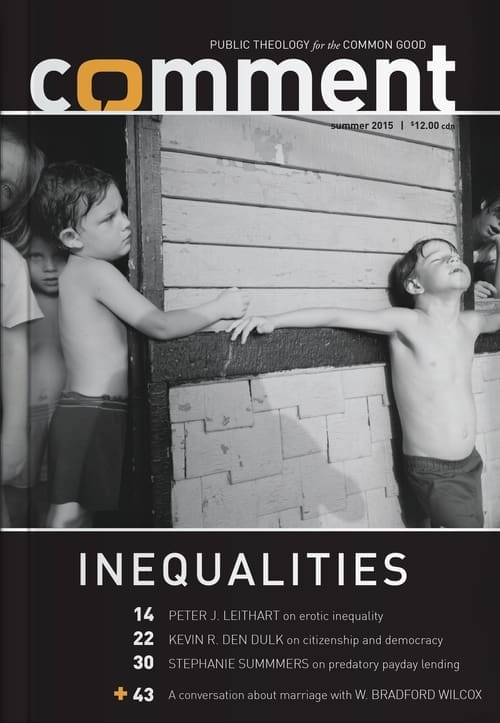Somehow, while so many have been watching Downton Abbey, we’ve witnessed a mounting campaign against inequality. And perhaps many of us are caught between the two: Even as we cheer Daisy’s ambition to climb out of her “downstairs” station, we drink up the splendor of the sumptuous costumes strutted about “upstairs.” While hashtag activism demonizes greedy CEOs, it’s hard not to love Lord Grantham and see something different in his admittedly feudal care for those employed on his estate. In these bucolic scenes from Yorkshire we witness the erosion of the aristocracy in the early twentieth century while the ghosts of plutocracy seem to be resurrected around us at the beginning of the twenty-first.
How many of us shuttle between our own upstairs/downstairs worlds, decrying inequality while benefiting from it? It’s easy to pick on Chelsea Clinton denouncing inequality in ELLE while draped in a Gucci dress accented by a Cartier bracelet and Bulgari necklace. But we saw this at Downton, too, in Sybil’s empathy for the working class that turned into love for their Irish chauffeur, Tom Branson. If we’re honest, many of us should probably see ourselves reflected in the working class Irishman, Tom Branson, advocating socialism while wearing tails to the ball. Indeed, here I am, writing about inequality while enjoying a four-dollar coffee and working on my MacBook Pro. Being “against” inequality might be trickier than it seems.
How to be (Un)equal
What’s remarkable today is that inequality has become a bipartisan rallying cry across the West. Concern about a steeply increasing rift between gilded elites and a sinking working class has galvanized both ends of the political spectrum. Everyone is talking about Robert Putnam’s Our Kids or Charles Murray’s Coming Apart or pretending they’ve read Thomas Piketty’s Capital. And President Obama’s recent participation in a Catholic and evangelical “poverty summit” showcased very different approaches to the “opportunity gap.” We are finally having a public conversation about how law, policy, and power have stratified society, where influential elites are increasingly sequestered from the realities of the world they are (re)making.
And it is the poor and vulnerable and disadvantaged who suffer the most as a result. In our conversation with Bradford Wilcox in this issue, and in Mark Mulder’s review of Our Kids, we see a complex reality: inequality seems to be both an effect and a cause, a spiraling circle that leaves dehumanization and disenfranchisement in its wake, both of which stand in the way of the solidarity that any functioning society needs to thrive. Anyone concerned about societal health, social justice, and our public life should be invested in careful, honest, nuanced diagnoses of our unequal age.
On the other hand, it’s very easy to be “against” inequality in ways that are simplistic, naïve, and self-congratulatory. Many who decry inequality in one sphere relish its benefits in another sphere. Some who seem bent on leveling all differences tenaciously cling to those that give them the opportunity to announce their opposition. Having a Twitter feed to proudly display your disgust with the villainous 1% is really its own sort of luxury. As Gideon Strauss reminds us in this issue, the disadvantages we (rightly) protest look like distinct advantages from other corners of the world.
Indeed, one could argue that being “against inequality” per se is an impossible, even nonsensical, position. As Peter Leithart points out in this issue, some “inequalities” are synonymous with the good and necessary differences that are woven into the warp and woof of a diversified creation. Some hierarchies are good expressions of healthy social organization. Simply put, it’s not inequality that’s the problem; it’s bad or unjust inequalities that deserve criticism. The issue isn’t whether there is inequality in society, but why and how.
And to propose “equality” as either the solution or the goal is its own sort of meaningless abstraction. Complex diagnoses of poverty, wage stagnation, and disadvantage demand equally nuanced articulations of what we’re hoping for. This issue of Comment zooms in with a more granular understanding of the sources and causes of unjust inequalities and names them as such: This is not the way it’s supposed to be. But we also don’t think shalom is synonymous with a bland or generic “equality,” or that the advent of justice is a leveler. There can be just inequalities, and with them often comes an unequal responsibility for the health of society.
Good Inequalities
Consider, for example, Tony Judt’s diagnosis of the university in his memoir, The Memory Chalet. Judt, who is no Tory, bemoans the way higher education has sold its mission to a bland democratization, thus actually compromising its goal of benefiting society. He sees a specific genesis of the problem:
I suspect that all this began precisely in those transitional years of the mid-1960s. We, of course, understand nothing of that. We got both the traditions and the transgressions; the continuities and the change. But what we bequeathed to our successors was something far less substantial than what we ourselves had inherited (a general truth about the baby-boom generation). Liberalism and tolerance, indifference to external opinion, a prideful sense of distinction accompanying progressive political allegiances: these are manageable contradictions, but only in an institution unafraid to assert its particular form of elitism.
There are “particular forms” of elitism that are goods for society. “Universities are elitist,” Judt continues, “They are about selecting the most able cohort of a generation and educating them to their ability—breaking open the elite and making it consistently anew. Equality of opportunity and equality of outcome are not the same thing. A society divided by wealth and inheritance cannot redress this injustice by camouflaging it in educational institutions—by denying distinctions of ability or by restricting selective opportunity.” We’ve thrown out the meritocratic baby with the aristocratic bathwater.
It is precisely because we value equality and dignity that we should oppose simplistic critiques of inequality. It is precisely because we care about the widespread health of society that we should unleash the unique gifts and powers of those who distinguish themselves and are willing to take responsibility as leaders and authorities. The problem is not an “elite” per se; the problem is a callous and greedy elite who shirk responsibility in the name of a supposedly sanctified self-interest. This is why Lord Grantham is an exemplar to hold up to what Piketty calls “patrimonial capitalists.” And we can all see the difference between a Lord Grantham of Downton Abbey and a Jack Donaghy of 30 Rock.
Fostering Fraternity
Piketty’s much-discussed Capital is a very French book, heir to a revolutionary heritage that mans the barricades with cries of “Égalité!” Without question, his quarry and concern is inequality. But even Piketty’s analysis is more nuanced than some of our public debates would suggest. As he puts it, his focus is not on “the level of inequality as such but to an even greater extent on the structure of inequality.” “Inequality is not bad in itself,” he rightly notes: “The key question is to decide whether it is justified, whether there are reasons for it.” This is exactly right: A good, healthy, just society is not flat, nor is some abstract “equality” the goal. The hope and vision is a society that is just, not blindly “equal.”
That’s why, by the time you get to the end of Piketty’s long tome, you realize that while all the chatter focuses on égalité, what’s really at stake is fraternité. As Kevin den Dulk points out in his piece, growing economic inequality should concern us because of its ripple effects on democracy. Conversely, grappling with the realities of rising economic inequality requires a cultural and political will that starts from a sense of solidarity. If we want to get at the root causes of unjust inequality, we need to ask fundamental questions about the character of society. Do we still imagine ourselves as being “in this together?” Do we have the moral sources we need to sustain a sense of our commonness?
Might that be something that we have to offer to a wider cultural conversation? Can the body of Christ model a koinonia, a communion, that bears witness to a social solidarity that is increasingly unimaginable? To do so we would need to recover a sense of our differences and the unique obligation of the imitatio Christi, our calling to model the incarnate Son who did not consider equality something to be grasped.





